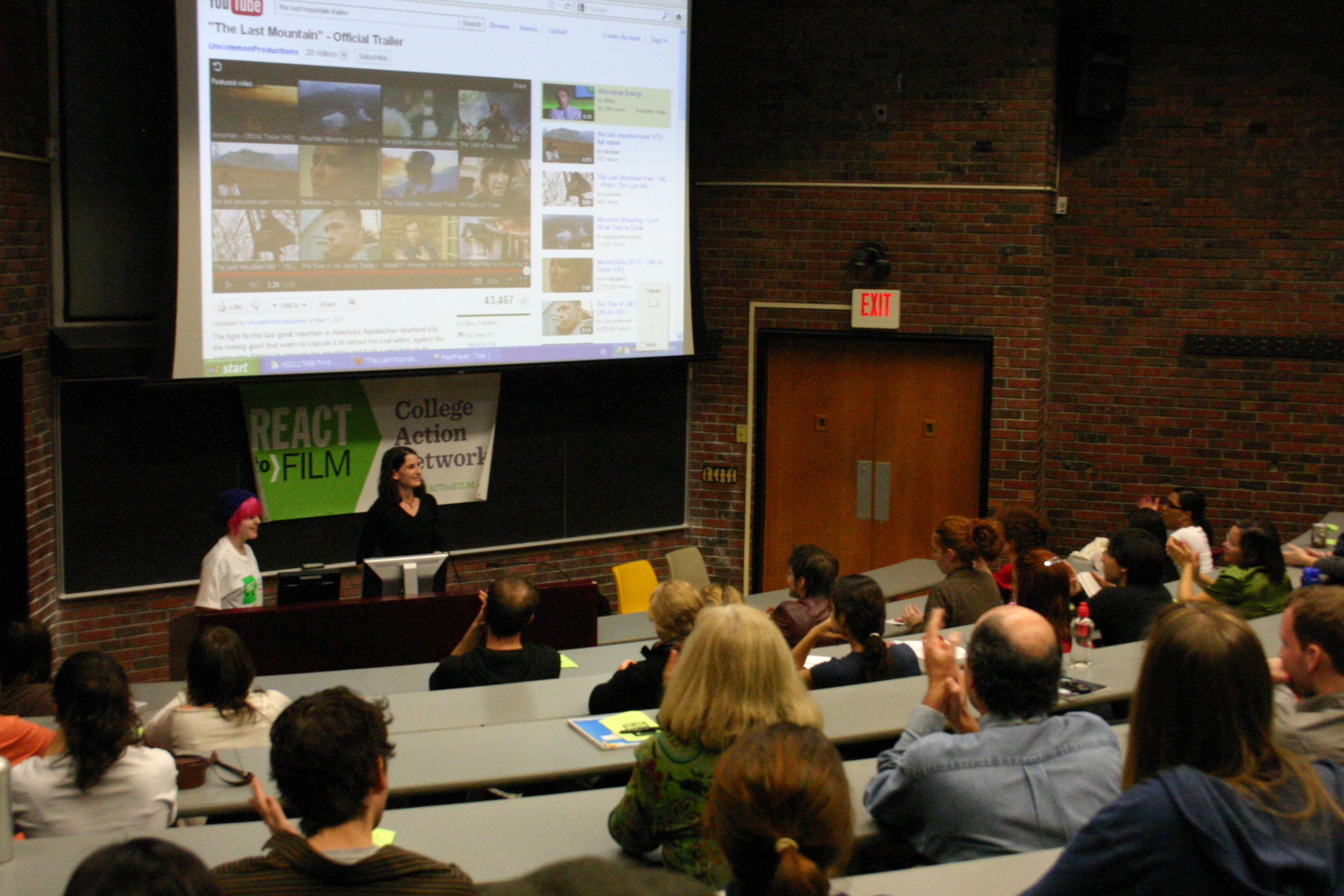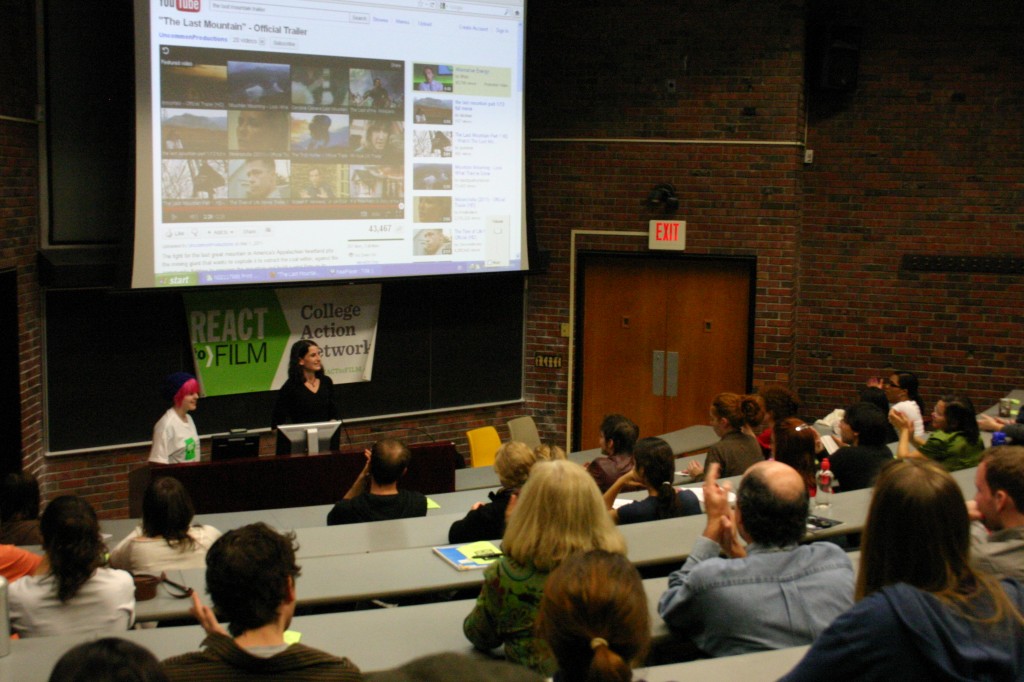

SUNY New Paltz students now have a way to become better informed about prominent issues and learn to take action with the inception of the campus chapter of React to Film.
React to Film is a non-profit organization originally created to influence important members of the media, but also created educational programs stemming from it.
“The organization originated as a documentary series screened to influential members of the media in an effort to bring the critical issues portrayed in the films to the forefront of their consciousness,” React to Film College Action Network Director Dahlia Graham said. “The College Action Network builds on the ‘Influencer Series’ model to bring documentaries to institutions of higher learning by creating student chapters that organize screenings and student motivated action after each film.”
Fourth-year media management major Lindsay Nimphius founded the chapter after film and video studies Professor Gregory Bray recommended her for the task. Bray learned about the organization from a former student, Jacqueline Northacker, who he ran into at the Woodstock Film Festival and was interning with React to Film. Northacker sent him more information on the organization, which he then ran by Professor Daniel Schackman.
“It seemed like a very interesting organization. I liked the kind of movies they were talking about bringing to college campuses,” Bray said.“It seemed like it would be a good social fit for this university as well.”
The two felt it would be a good program for the film and video studies minor to get involved with, along with the Communication and Media Society. They also thought it would be a good opportunity for a media management major with an interest in production and they said Nimphius stood out as an impressive student who could handle the job.
While other schools had months to plan their initial showing, Nimphius had two weeks to put together the first screening of the semester. It took place on Tuesday, Nov. 1 and was a documentary titled “Missrepresentation”about women’s portrayal in media and the effect on society. With the help of the Communication and Media Society E-board and various professors, Nimphius advertised the event through Facebook and word of mouth.
Lecture Center 104 filled up completely and attendees had to bring in extra seating. With the large turnout and the discussion after, featuring Professor Janice Anderson, Nimphius was pleased with React to Film’s debut.
“There were questions about what you can do, a lot of the people watching were in the communication and media major so ‘how are you going to change things when you get into the business?’” Nimphius said. “We covered basically everything in the film and how it relates to education here, how we can bring up issues of gender (not just sex) equality and how that can be incorporated into at least humanities courses.”
The next and final film to be shown this semester will be “The Last Mountain”on Wednesday, Nov 16. The film reveals the controversy behind coal mining and burning in the Coal River Valley, V.A. This event will differ from the first as every school within the College Action Network will screen the documentary at the exact same time and there will be a live online Q&A with the director following the film.
“It’s going to be a lot of cooperation with the audience which I think is a really good thing when it comes to film because it’s usually a one way street,” Nimphius said.
As the organization generally selects films about pressing issues in today’s society that they believe students will care about, Nimphius is excited to have this chance for students to take note of what is going on around them.
“It’s hard to be aware really while you’re in school, with the Internet it’s a little easier, but you’re basically on this campus for months on end and it’s very hard to stay aware when you’re drowning in books and such,” Nimphius said.“Just take an hour of your time, two times a year to see what’s going on and what you can do maybe now or when you get out of school.”
